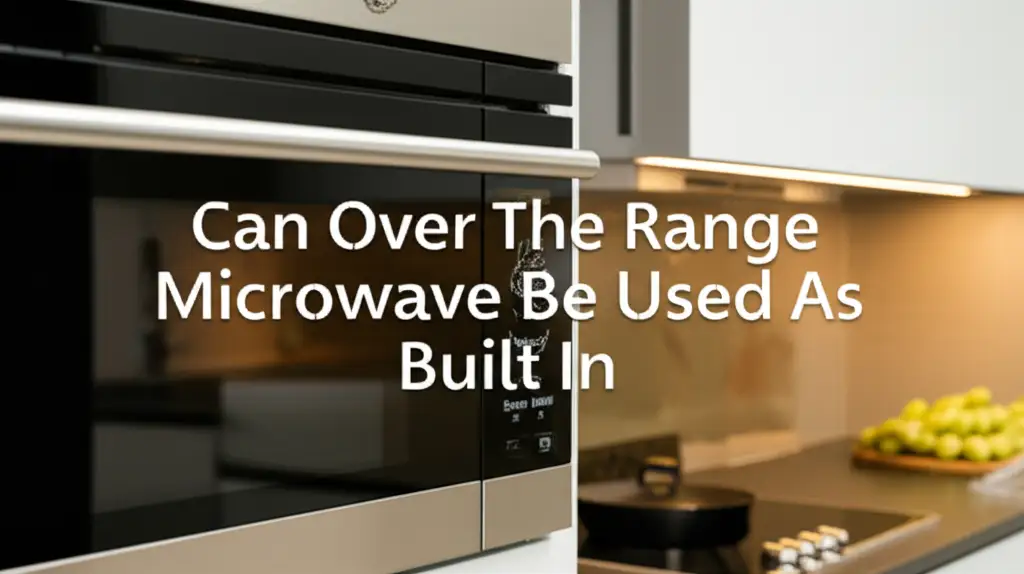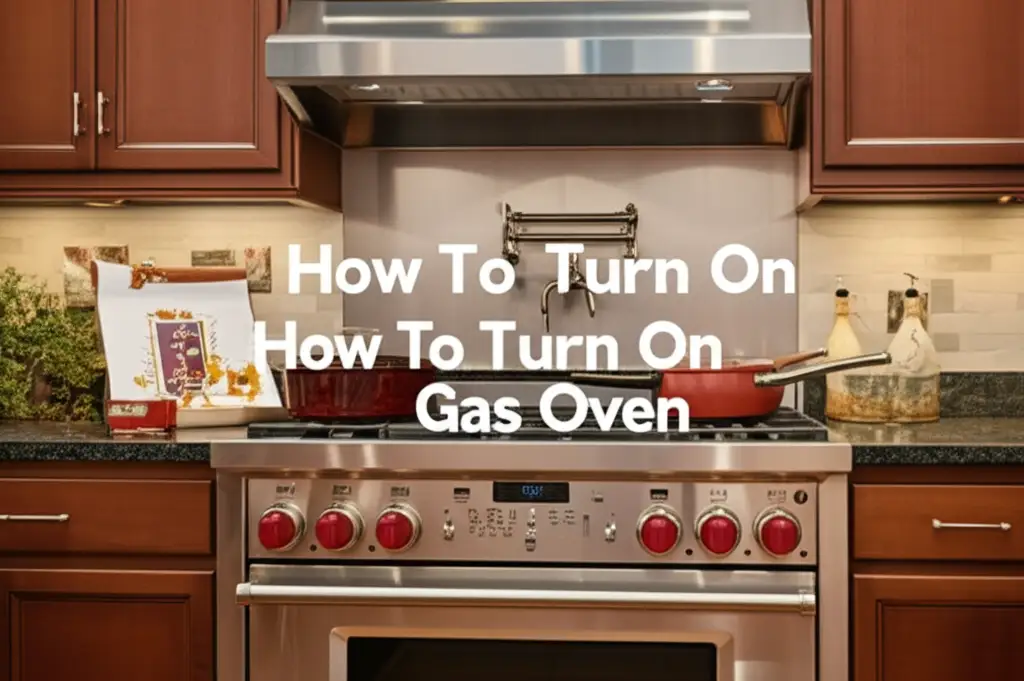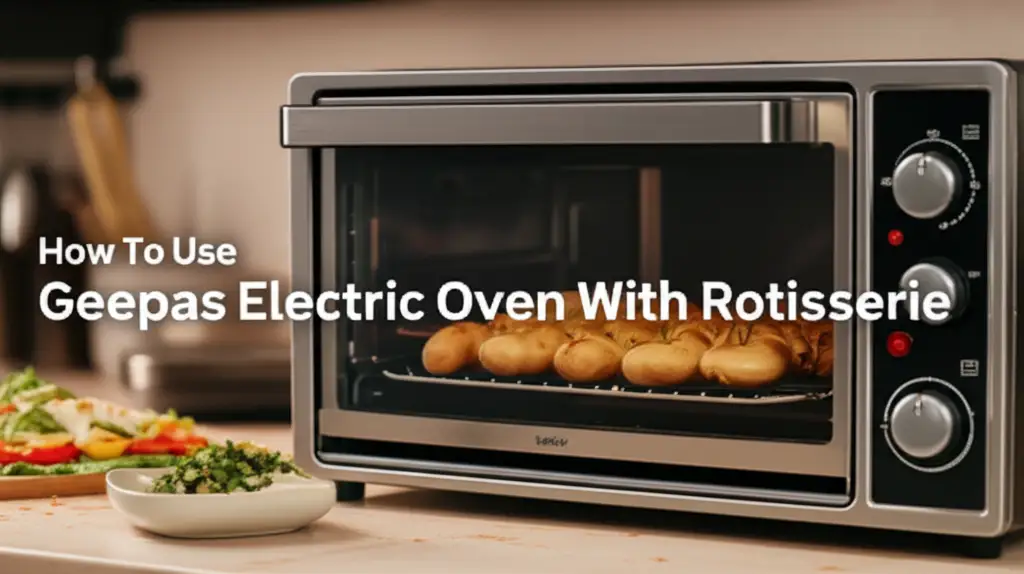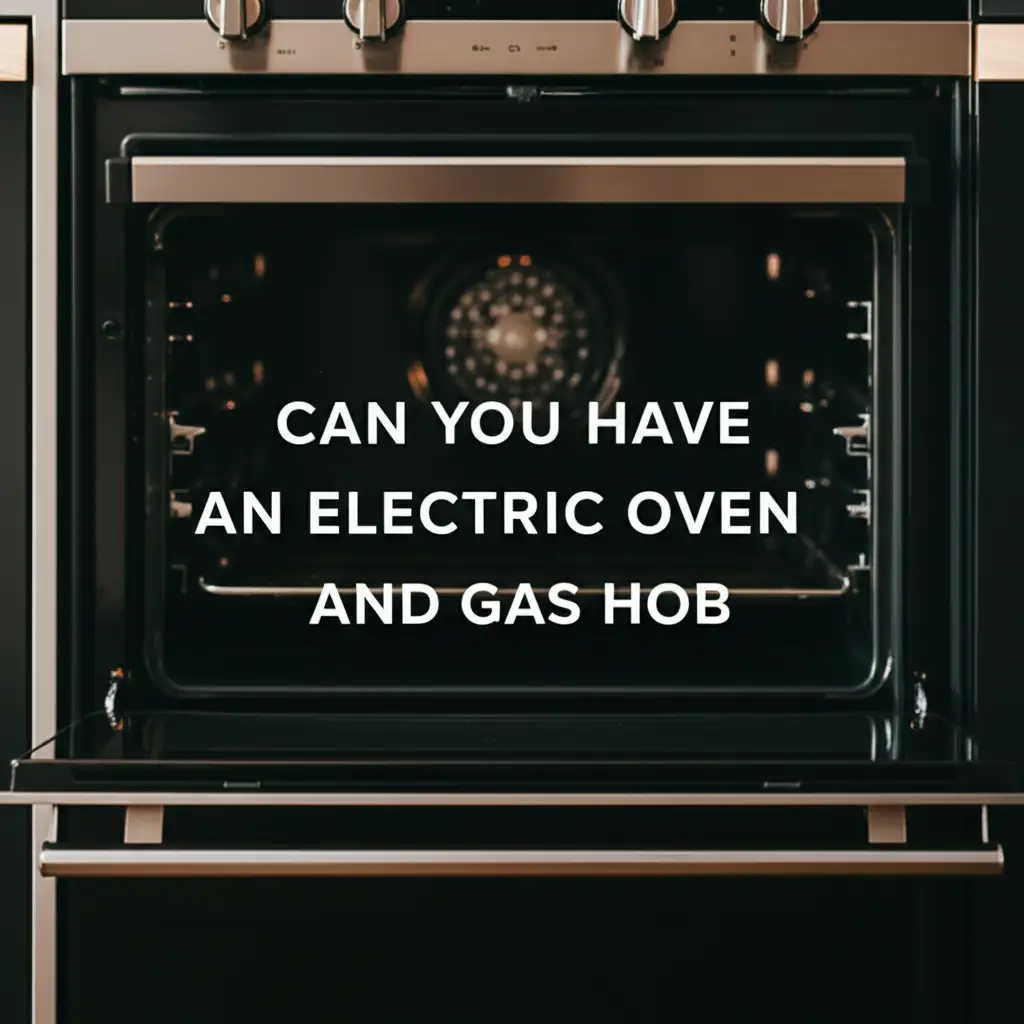· Todd Martin · Kitchen Appliances · 13 min read
Can You Switch From Gas Oven To Electric
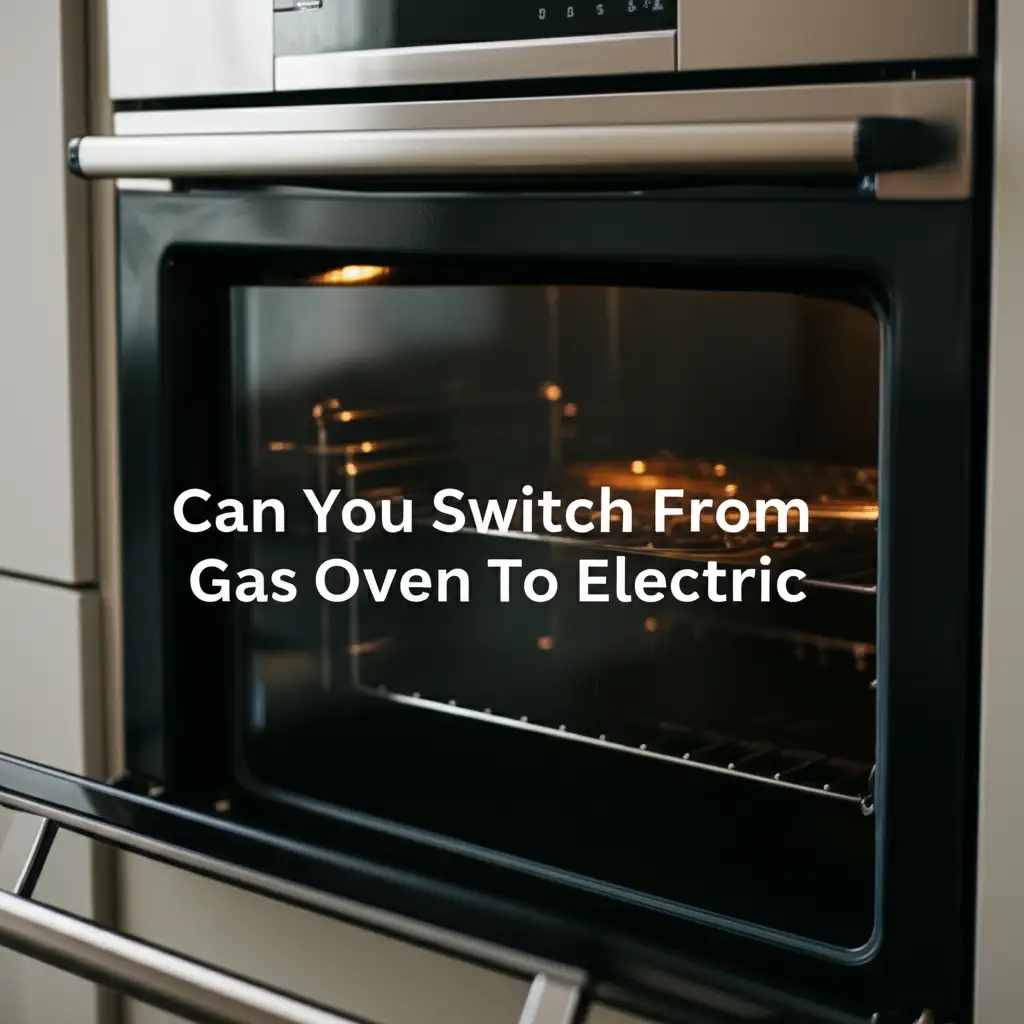
Switching From Gas To Electric Oven: A Comprehensive Guide
Are you thinking about changing your kitchen setup? Perhaps your current gas oven is getting old, or you simply prefer the cooking experience an electric model offers. Many homeowners wonder: Can you switch from gas oven to electric? The short answer is yes, you often can, but the process involves more than just unplugging one appliance and plugging in another. This upgrade requires careful planning and professional help.
Switching from a gas oven to an electric one is a significant home improvement project. It affects your kitchen’s utility connections, overall safety, and even your cooking style. This guide will walk you through the entire process. We will cover the differences between gas and electric ovens, the electrical requirements for a new unit, and how to manage your existing gas line safely. We will also look at the costs involved and when to call in the experts. By the end, you will understand what it takes to make this change.
Takeaway
- Yes, you can switch from gas to electric oven.
- Professional help is often necessary for gas line disconnection and electrical work.
- You need a dedicated 240V electrical circuit for an electric oven.
- Gas lines must be safely capped by a qualified technician.
- Costs include the new oven, electrical upgrades, and plumbing services.
Yes, you can absolutely switch from a gas oven to an electric oven. This project requires professional handling of both the gas line disconnection and the installation of a new, dedicated 240V electrical circuit for the electric appliance. Safety and proper utility connections are paramount for this change.
Understanding the Feasibility of the Oven Switch
Many homeowners consider upgrading their kitchen appliances. They often ask, “Can I switch from my gas oven to an electric model?” The answer is generally yes. Most homes have the basic infrastructure to support such a change. However, this is not a simple swap. It needs specific electrical and gas line adjustments.
Your existing kitchen likely has a gas line running to your current oven. An electric oven, on the other hand, needs a special electrical circuit. This circuit is usually 240 volts, unlike the standard 120-volt outlets found in most rooms. Your home’s electrical panel must handle this new load. You also need space to run new wiring from the panel to the oven’s location.
The first step involves a detailed assessment of your home’s utilities. An electrician can check your main electrical panel. They can tell you if it has enough capacity for a new 240V circuit. They will also determine if new wiring is feasible. A qualified plumber or gas technician will inspect your gas line. They ensure it can be safely disconnected and capped. This initial check prevents unforeseen issues during the project. It sets a clear path for your oven upgrade.
Key Differences: Gas vs. Electric Ovens
Understanding how gas and electric ovens work is important. Each type offers a different cooking experience. Gas ovens use a burner that ignites gas to produce heat. This heat often feels moist and can be good for roasting. Electric ovens use heating elements to produce dry heat. This heat is generally more consistent.
Gas ovens heat up quickly. They also cool down fast once you turn them off. The flame provides immediate heat, which cooks food well. However, gas ovens can have hot spots. Heat distribution might be uneven due to the flame’s nature. Cleaning a gas oven can also involve dealing with burner grates and drip pans. If you want to know more, you can learn how to clean a gas oven.
Electric ovens often provide more even heat. Their heating elements spread warmth throughout the oven cavity. This is good for baking delicate items like cakes or cookies. Electric ovens preheat slower than gas models. They also retain heat longer after you turn them off. This makes them more energy-efficient for some cooking tasks. Electric ovens usually have flat bottoms, making them easier to wipe clean. If your electric oven gets dirty, you can find tips on how to clean an electric oven. Many people wonder if electric stoves cook as well as gas. The answer often comes down to personal preference and cooking style.
Essential Electrical Requirements for an Electric Oven
Switching from a gas oven to an electric one means big changes to your home’s electrical system. Electric ovens need a dedicated, high-voltage circuit. Standard wall outlets deliver 120 volts. An electric oven needs 240 volts. This is a significant power difference.
Your electrical panel must have enough capacity for this new circuit. Most electric ovens require a 30-amp, 40-amp, or even 50-amp breaker. The exact amperage depends on the oven model. A qualified electrician must install this new circuit. They will run new, heavy-gauge wiring from your main electrical panel to the oven’s location. This wiring connects to a dedicated breaker in the panel. This ensures the oven has its own power supply. It prevents overloading other circuits in your home. Overloading can cause issues like tripping breakers. You might even wonder why does my gas oven keep tripping the electric if a gas model has a pilot light or electronic ignition, but a full electric oven needs much more power.
The electrician will also install a specific 240V outlet. This outlet differs in shape and size from regular 120V outlets. Do not try to plug a 240V appliance into a 120V outlet. This causes damage and creates fire hazards. In some regions, specific safety devices are mandatory. For example, some places require an isolation switch near the oven. You might find information about this, such as whether an electric oven needs an isolation switch in Australia. Getting professional help ensures your electrical system is safe and up to code. It protects your home and family.
Managing the Gas Line: Disconnection and Capping
The gas line is a critical part of switching from a gas oven to an electric one. You cannot simply leave the old gas line open. It must be safely disconnected and capped. Gas is highly flammable and dangerous. Even a small leak can cause serious problems. Therefore, this step needs a licensed professional.
A qualified gas plumber or HVAC technician handles gas line work. They have the tools and expertise to shut off the gas supply safely. They will then disconnect the existing gas line from your old oven. After disconnection, they cap the line. Capping means sealing the end of the gas pipe securely. This prevents any gas from escaping into your home. The plumber will perform a leak test to ensure the cap is tight. This step is non-negotiable for safety. Attempting this yourself is extremely risky. It can lead to gas leaks, explosions, or carbon monoxide poisoning.
In many areas, permits are required for gas line alterations. Your plumber will know the local codes and regulations. They will ensure all work complies with these rules. This guarantees the work is done safely and legally. Gas ovens rely on this fuel, and issues can arise if not handled properly. For example, you might experience issues like why does my gas oven turn off by itself if there’s a problem with the gas flow or safety mechanism. After the gas line is capped, it becomes inactive. You can then proceed with your electric oven installation.
Installation Process: Step-by-Step Overview
Once the electrical and gas work is complete, you can install your new electric oven. This process involves careful steps to ensure proper functionality and safety. Always read the manufacturer’s instructions for your specific oven model.
First, prepare the space where the new oven will go. Make sure the area is clean. If you are replacing a built-in unit, check the cabinet dimensions. Electric ovens may have slightly different size requirements than gas models. For freestanding ovens, ensure there is enough clearance around the appliance. Next, carefully unbox your new electric oven. Check for any damage. My oven arrived with no issues, which made the next steps easier.
The actual installation begins with connecting the oven to its new 240V electrical outlet. Ensure the power to that circuit is off at the breaker panel before connecting. The oven will typically have a large plug that fits into the specialized 240V receptacle. For built-in models, securing the oven within the cabinet involves screws or brackets. After connecting the power, carefully slide the oven into its final position. Double-check that it is level. Finally, turn the power back on at the breaker panel. Test the oven’s functions, like preheating and the clock. Ensure everything works as expected. Sometimes people wonder if they can have an electric oven and gas hob. This setup is very common and perfectly fine, as they use separate fuel sources.
Costs, Permits, and Professional Help
Switching from a gas oven to an electric one involves several costs. It is more than just the price of the new appliance. You must budget for professional services and permits. These costs vary based on your location and the complexity of the job.
Appliance Cost: The price of an electric oven varies widely. Basic models start around $600. High-end, feature-rich ovens can cost over $3,000. Consider your budget and cooking needs when choosing an oven.
Electrical Work: This is often the most significant cost. An electrician must install a new 240V circuit. This involves running new wiring from your main electrical panel. Costs can range from $500 to $1,500 or more. The price depends on the distance from the panel and the complexity of the wiring path. If your panel needs an upgrade to handle the new load, this cost will increase significantly.
Gas Line Work: A licensed plumber or gas technician must disconnect and cap the gas line. This service typically costs between $150 and $400. This fee covers the labor and ensures the work is done safely and to code.
Permit Fees: Many jurisdictions require permits for electrical and gas line alterations. These fees ensure the work meets local building and safety codes. Permit costs usually range from $50 to $200. Your professionals will usually handle the permit application process.
Why Professional Help Is Essential:
- Safety: Working with gas lines and high-voltage electricity is dangerous. Professionals have the training and tools to do the job safely.
- Compliance: Licensed professionals ensure all work meets local building codes. This prevents future issues and protects your home’s value.
- Expertise: They can identify potential problems before they arise. They ensure proper installation and functionality.
- Insurance: Most professionals carry insurance. This protects you if something goes wrong during the installation.
Attempting to do gas or electrical work yourself without proper qualifications is illegal and unsafe. Always prioritize safety and hire licensed professionals for these critical tasks.
Advantages and Disadvantages of the Switch
Changing from a gas oven to an electric model brings a new set of benefits and drawbacks. Understanding these helps you decide if the switch is right for your kitchen.
Advantages of Electric Ovens:
- Even Heat Distribution: Electric ovens often provide more consistent and even heat. This is due to the radiant heat from their elements. It is great for baking.
- Precise Temperature Control: Electric models typically maintain temperatures more accurately. This precision helps achieve better results for delicate recipes.
- Easier Cleaning: Many electric ovens have smooth, flat bottoms. This makes them simpler to wipe down than gas ovens with grates and burners. They often feature self-cleaning cycles too.
- Safety: Electric ovens do not have an open flame or the risk of gas leaks. This can be a significant safety advantage for some homeowners.
- Modern Features: Newer electric ovens often come with advanced features. These include convection baking, air frying, and smart connectivity.
- No Carbon Monoxide Risk: Since there is no combustion, an electric oven produces no carbon monoxide. This eliminates the need for strict ventilation requirements associated with gas.
Disadvantages of Electric Ovens:
- Higher Upfront Cost: The total cost of switching is higher. This includes the new oven, electrical upgrades, and professional installation.
- Requires Dedicated Circuit: You must install a new 240V electrical circuit. This can be a complex and expensive part of the project.
- Impact of Power Outages: Electric ovens will not work during a power outage. Gas ovens, especially older models with pilot lights, might still function without electricity. You might have wondered, can you use a gas oven when power is out? Many gas ovens will operate, though electronic ignitions won’t spark.
- Slower Preheating: Electric ovens can take longer to preheat compared to gas ovens.
- Different Cooking Feel: Some chefs prefer the immediate heat and “moist” cooking environment of gas ovens. Adjusting to an electric oven’s dry heat can take time.
- Repair Costs: Electronic components in modern electric ovens can sometimes be more expensive to repair than simpler gas oven parts.
Weighing these points helps you make an informed choice. My own experience showed me that the precise baking of an electric oven was worth the initial investment.
Frequently Asked Questions
Is it expensive to switch from gas to electric oven?
Yes, it can be expensive. The costs include the new electric oven itself, which varies in price. You also need to pay for an electrician to install a new 240V circuit, which can cost several hundred dollars. A plumber must safely disconnect and cap the gas line, adding another fee. Overall costs can range from $1,000 to over $3,000.
How long does it take to switch from gas to electric oven?
The actual installation of the oven takes a few hours. However, the entire process can take longer. You need time for professional consultations, getting permits, and scheduling the electrician and plumber. This could span from a few days to a few weeks, depending on professional availability and permit processing times.
Do I need a professional to switch my oven?
Yes, absolutely. Working with gas lines and high-voltage electricity is dangerous. A licensed gas plumber must disconnect and cap the gas line. A certified electrician must install the dedicated 240V circuit. Trying to do this yourself is unsafe and can lead to serious hazards.
What permits are required for this conversion?
Most local building departments require permits for both gas line alterations and significant electrical work. Your licensed gas plumber will handle the gas permit. Your electrician will handle the electrical permit. These permits ensure the work meets local safety codes and standards. Always confirm permit requirements with your chosen professionals.
Will an electric oven improve my cooking?
Many people find electric ovens offer more consistent and even heat. This can lead to better baking results, especially for items like cakes, cookies, and casseroles. Electric ovens also often have more precise temperature control. While gas ovens are preferred for some cooking styles, electric ovens generally excel at baking and roasting evenly.
Can I do some of the work myself?
You should not attempt the gas line disconnection or the new electrical circuit installation yourself. These tasks require professional licenses and expertise due to safety risks. You can, however, do some preparatory work. This includes clearing the area, carefully unboxing the new oven, and possibly moving the old appliance once the gas is disconnected and the power is off.
Conclusion
Switching from a gas oven to an electric model is a significant home improvement project. It is definitely possible, but it requires careful planning and the help of qualified professionals. You must address both the existing gas line and the new electrical requirements. This means hiring a licensed gas plumber to safely cap the gas line and a certified electrician to install a dedicated 240V circuit.
While the upfront costs of this conversion can be substantial, many homeowners find the benefits of an electric oven worth the investment. These benefits include more even heating, precise temperature control, and enhanced safety features. Making this change can modernize your kitchen and improve your cooking experience. Always prioritize safety and professional expertise. Contact local licensed contractors today to discuss your specific needs and ensure a smooth, safe transition for your kitchen upgrade.
- gas oven
- electric oven
- kitchen upgrade
- appliance installation
- home improvement
- electrical wiring
- gas line


